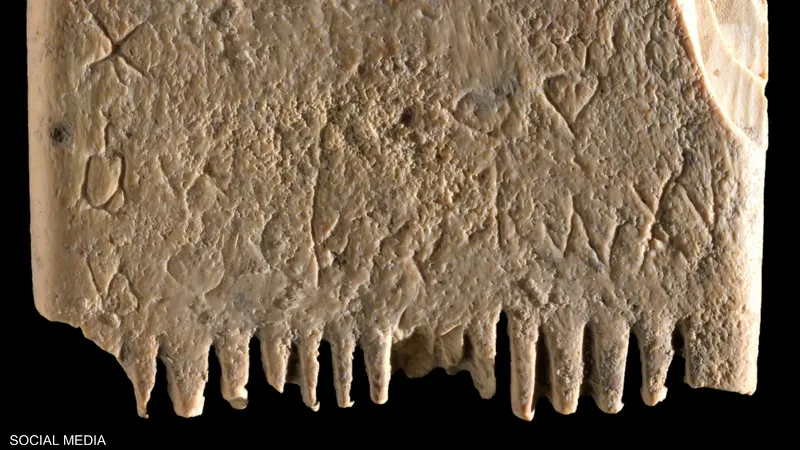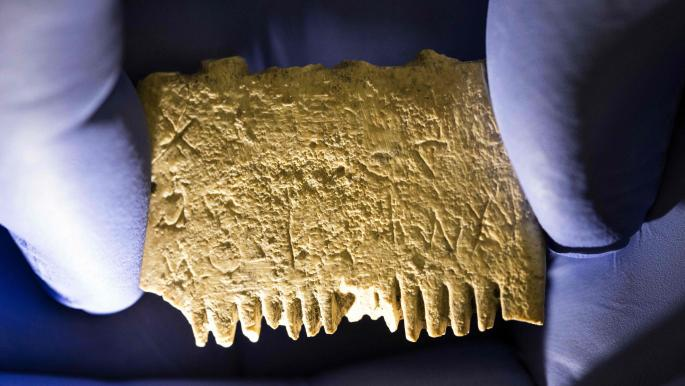On an old comb to remove lice... The discovery of the first Canaanite sentence
Canaanite writing on an ancient ivory comb found in Israel
Archaeologists said Wednesday that a rare inscription that sheds new light on the use of the Canaanite language some 3,700 years ago was discovered on an ivory comb in southern Israel.
The comb was found at the site of Tel Lachish in 2017, but the letters were not noticed until earlier this year after an in-depth examination, according to a statement by the Hebrew University of Jerusalem .
Hebrew University archaeology professor Yosef Garfinkel said the artifact "provides direct evidence" of the use of the Canaanite alphabet in everyday life.
The statement said that the 17 letters engraved on the comb, which was used to remove lice, are seven words that translate to "I hope this tusk kills hair and beard lice."
Garfinkel noted that "this is the first sentence to be found in the Canaanite language, " describing it as "a milestone in the history of man's ability to write ."
Lachish, about 40 kilometers southwest of Jerusalem, was a major Canaanite city .
The statement indicated that archaeologists found 10 inscriptions in them, but the comb represents the first "complete verbal sentence" written in the language spoken by the inhabitants of ancient Lachish.
He pointed out that the comb itself was most likely an imported luxury item since there were no elephants in Canaan, and therefore no ivory.
source:Websites



